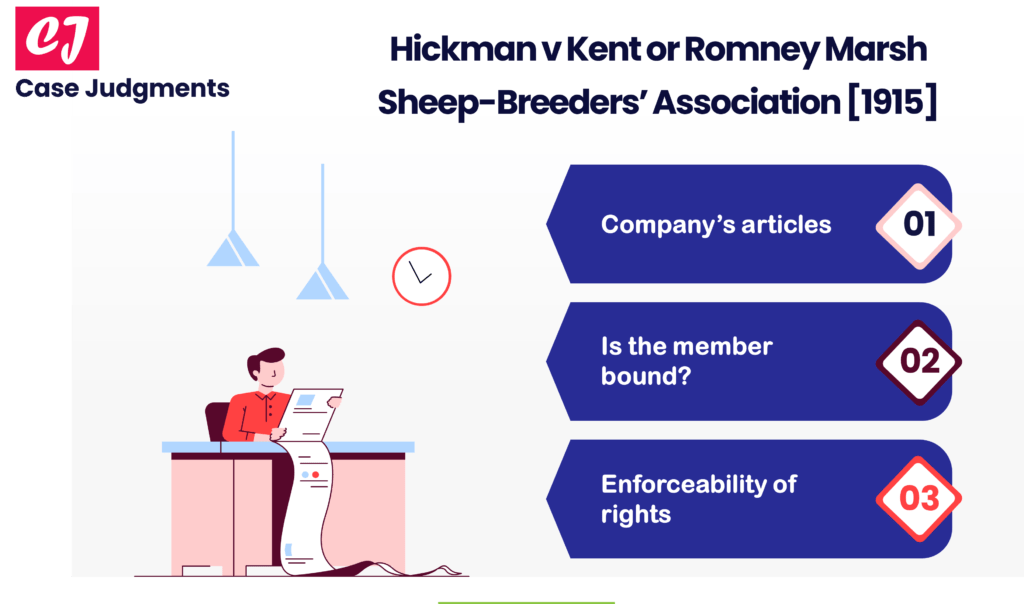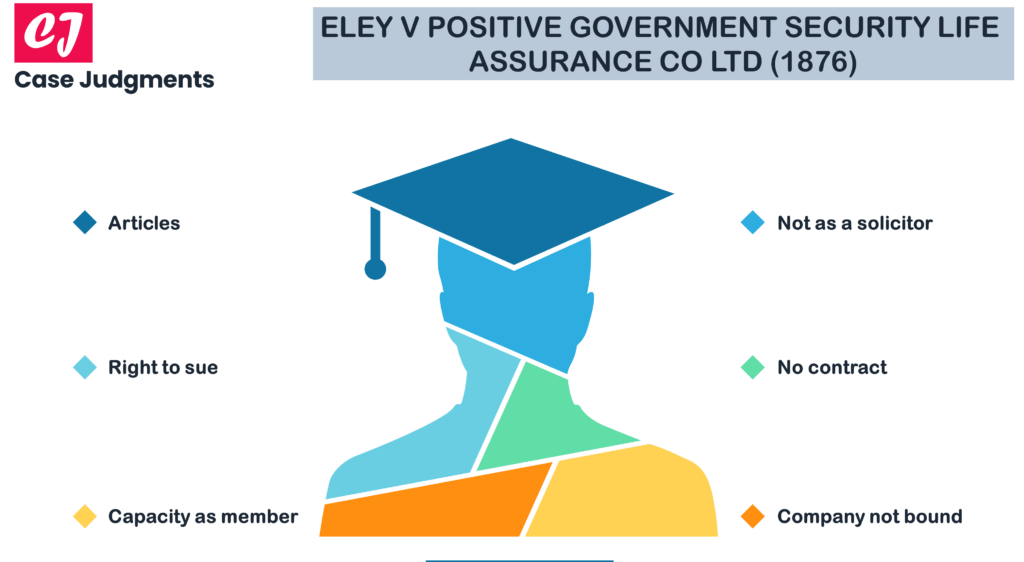Hickman v Kent or Romney Marsh Sheep-Breeders’ Association [1915]
Case name & citation: Hickman v Kent or Romney Marsh Sheep-Breeders' Association [1915] 1 Ch 881 Court and jurisdiction: High Court, England and Wales The learned judge: Astbury J Area…

